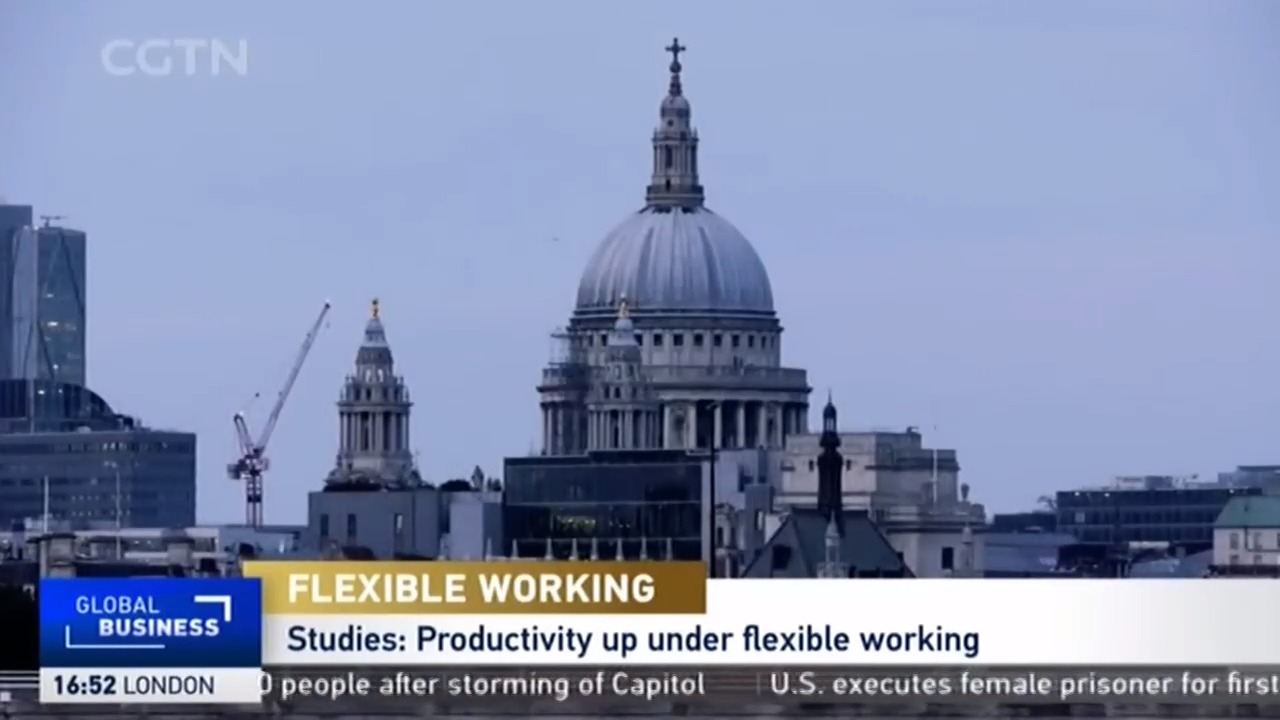03:51

Flexible working conditions could remain in place beyond the end of the COVID-19 pandemic, a U.S. consultant has told CGTN Europe.
The COVID-19 pandemic has forced millions of people around the world to work from home and Boston Consulting group's Nick South believes employees will be allowed to continue to do so in the future, for at least some of the time anyway.
"It's certainly the case that we're not going to be going back to the world we were in before COVID-19," South said. "You know, we'd seen tentative moves towards more remote working before, but suddenly overnight we were plunged into this massive social experiment – and the surprising thing for everyone was just how well it worked.
"Everyone said 'Going forward, I'd quite like a more hybrid way of working, which mixes a bit more of remote working with in-office time face-to-face.' And actually, people found they could be quite productive," he added. "And companies have said, 'You know what, there's a way of working here we can we can work with.'"

Major financial firm Standard Chartered has already said it will allow staff to work away from their offices for at least the next 12 months, with other companies following suit.
Despite many people preferring to work from home, some individuals believe they are better suited to working in an office. Research from South's Boston group backs up this theory.
"We found that people felt they could be as productive or more productive on certain tasks, administrative tasks, thinking time, meeting deadlines," South said. "But when it came to working collaboratively with their colleagues, being creative, spending time with customers and clients, there's a lot of value being in a building.
"And so as people, as organizations are thinking about what roles and activities different teams play, they need to think about what different models can used for different teams."
Many people are still sceptical of coming back to work, either because they are concerned about the virus or they have got into a routine with working from home. But it's the employers' job to entice them back to the office, South said.
"One thing we know is that cities have this sort of buzz and dynamism and energy that people want to be part of," he said. "And so as we come out of COVID-19, organizations are going to think about the settings we need to bring people back to. And cities are going to have to think, 'How do we recreate that buzz and energy?'"

